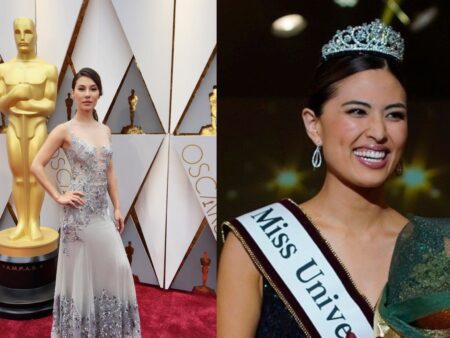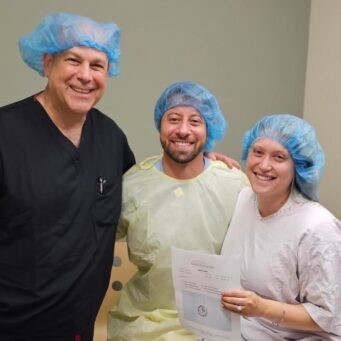
I entered the world of fertility treatments all wrong. Instead of feeling excited, in charge and informed, I was nervous, overly trusting, and had no idea what to expect. I felt indebted to the doctors who had the power to make it possible for me to conceive. I took their word as gospel, and didn’t think of questioning them. At a time when I needed to be in the driver’s seat, I was cringing in the backseat instead.
“So it looks like you have PCOS,” my first infertility doctor, Dr. Levy* said, closing my file folder and looking at me across her desk.
“What is that?” I asked, feeling doomed and terrified.
“Polycystic Ovary Syndrome,” Dr. Levy said. “It’s an endocrine disorder that leads to female infertility. There’s no ovulation, so tiny cysts form on the ovaries. You don’t actually exhibit all the symptoms of the syndrome, but…if it looks like a duck and sounds like a duck, it’s probably a duck.”
So I was a probably a duck with something called PCOS. What if I was a platypus though? I wanted to ask about all the symptoms of this syndrome, including the ones I had, but the words “endocrine disorder” and “cysts” set off bright red “WTF” flags in my head.
“Will I…um, how serious is this?” I asked, stumbling over my words because my thoughts were racing a million miles an hour.
“It’s really common and very treatable,” Dr. Levy said. “You’ll need to meet with our endocrinologist who is one of the directors of our reproductive medicine center…” she continued talking while she got up from her chair and walked me to the door. She held out her hand, saying, “She’s fantastic; you’ll love the team over there,” we shook hands, and I headed out of her office.
Unlike many women, I had been “blessed” with the prior knowledge that getting pregnant wasn’t going to be a walk in the park (and certainly not a romp in the park). When I was 18, my first gynecologist had told me that I didn’t get regular periods because I had “ovarian failure” and I would need fertility drugs to get pregnant. This of course went in one ear and out the other because at 18, I was only concerned with not getting pregnant.
Thirteen years later, married and ready to start a family, I didn’t have to “try” for an agonizing year, wondering what was wrong with me or my husband. I just asked my OBGYN to refer me to a fertility specialist and landed in Dr. Levy’s office. And now I had PCOS and was headed to a different office. In my blind faith, I didn’t question the diagnosis because who was I to question my doctor? I was no duck expert.
I went home with my new diagnosis, eager to learn absolutely everything about it before my fertility treatments began, so I could ultimately conquer it and get pregnant. A basic online search told me that two of the symptoms of PCOS were obesity and hirsutism (excessive growth of facial or body hair). I hoped that they were the ones Dr. Levy said I didn’t have, but I actually began to question myself—maybe the amount of hair on my arms was excessive. Maybe having five pounds to lose was borderline obesity when you’re only 5’4. Like with a newspaper horoscope, I could make just about any detail fit my profile if it was vague enough.
Although I never felt like it fully explained my infertility, I operated under the belief that I had Polycystic Ovary Syndrome
Along with my internet research, I ordered a book about PCOS that was mainly about how to get pregnant when you suffer from the disorder. Carbs apparently made it worse, and the book detailed a low-carb diet for PCOS sufferers, which I immediately implemented into my carb-loving lifestyle. I berated myself for all the times I’d made my ability to conceive even more impossible simply by eating bagels and pasta. If only I’d known I had PCOS back then!
Although I never felt like it fully explained my infertility, I operated under the belief that I had Polycystic Ovary Syndrome for almost an entire year. I joined forums for PCOS sufferers and commiserated online with my new sisters, and sadly ate my carb-light diet as the months cycled by.
As I navigated through my first year of fertility treatments, I learned more, gained more confidence, and made better decisions. After a pregnancy-free year with Dr. Levy and her associates that included three months of Clomid and four IUIs, I began looking into other doctors. I had attended a few fertility conferences and made an appointment with Dr. Savoy*, a Manhattan-based doctor who impressed me with his dedication to fertility research. During our discussion of my medical history, he asked many questions, some of which I found surprising, about my teenage years and my eating habits during puberty.
At some point I mentioned that I had PCOS.
Dr. Savoy gave me a once-over and said, “You don’t have PCOS.”
“Yes I do,” I said.
“No, I don’t think you do,” he said.
I just looked back at him. PCOS had been part of my infertility identity for a year.
“You don’t have a mustache, you’re not obese, you don’t have acne. Let me see your arms.”
I held out my arms for inspection.
“You’d have darker hair, more like a man if you had PCOS. It’s possible to have polycystic ovaries but not have Polycystic Ovarian Syndrome.”
Just like that, I no longer had PCOS. It felt strange, like someone telling me I’m not a Virgo, but I felt relieved at the same time.
“It sounds to me like you have Hypothalamic Pituitary Ovarian Dysfunction,” Dr. Savoy said.
I stopped him there, saying, “Could you repeat that, slower this time?” By now, I knew that infertility jargon was filled with long words I’d never remember, and I knew that doctors are happy to slow it down and explain.
Dr. Savoy filled me in on HPOD, which is extremely complicated, but basically meant that my hypothalamus and pituitary gland weren’t able to communicate with my ovaries, which then couldn’t produce an egg. He described the female reproductive system as an orchestra—to begin, the conductor has to signal the violinist, and then the cellist gets his cue, etc. and if they play their parts at the correct time, the result is a beautiful symphony (ovulation). He said that in my body, the orchestra was silent. Although he couldn’t be sure, his guess was that my extreme athleticism and strict dieting during puberty had caused this dysfunction, but with the right medications, I could get the orchestra in tune and playing the symphony I needed to get pregnant.
This made perfect sense to me, and as I listened I knew that what he was talking about was exactly the reason why I didn’t ovulate, and exactly why I needed to take fertility meds. After one IUI with Dr. Savoy and his team, I was pregnant with twins.
I’m not saying that Dr. Levy and her staff were wrong; she just didn’t take the time to find out why I wasn’t ovulating and sent me down a path that was unhelpful. I’m not saying Dr. Savoy is Professor Dumbledore either. What I’m saying is: be your own infertility advocate — do the research, ask the questions, and find the doctor and clinic that is right for you. Because sometimes, it might look like a duck and it might even sound like a duck, but it just might be a platypus after all.
* Doctors names have been changed.
Contributor
Gloria Fallon
Gloria Fallon is a New York-based comedy writer and co-author of the humor book "The Pessimist’s Guide to Life." A regular contributor for US Weekly’s Fashion Police, her writing has also appeared in Pregnancy, Mommyish.com, SheKnows.com and The Huffington Post. Her first book is forthcoming from Crown/Random House in 2018. You can follow her on Twitter @gloriafallon123

Listen to stories, share your own, and get feedback from the community.

















